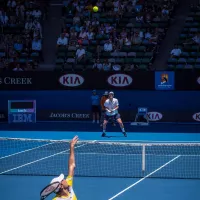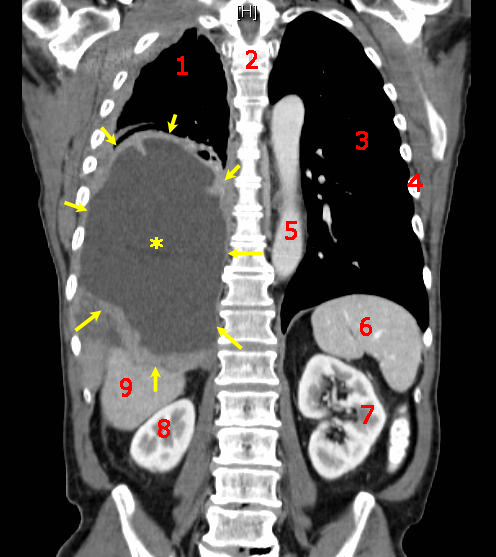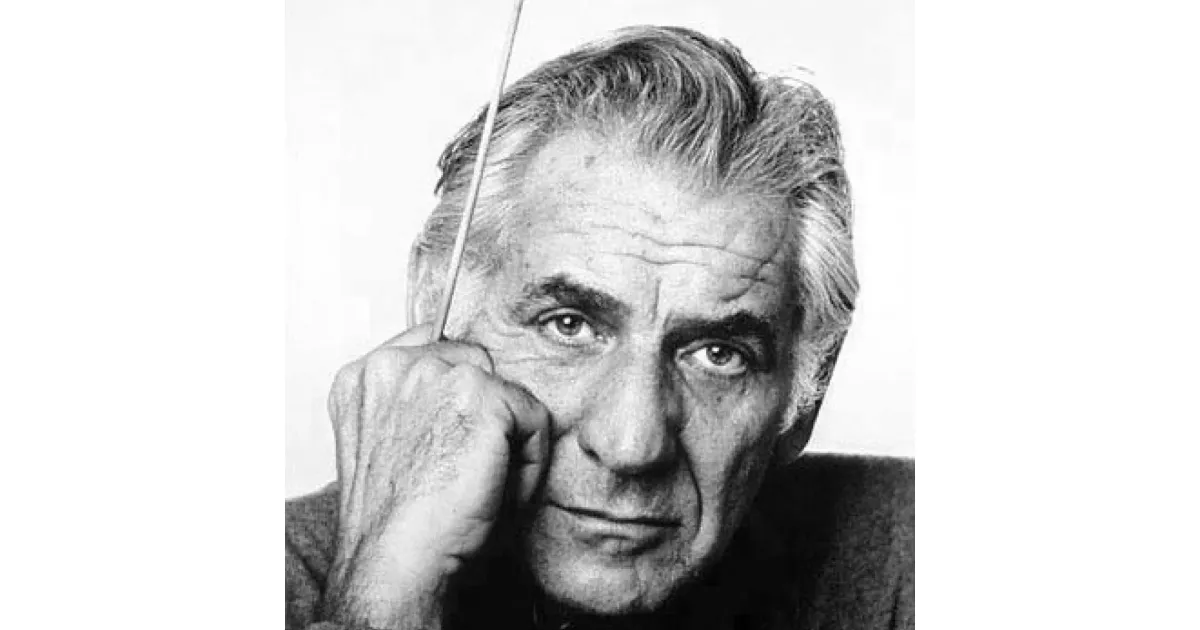Discover the career path of Leonard Bernstein, from the first major opportunity to industry-changing achievements.
Leonard Bernstein was a highly influential American conductor, composer, pianist, educator, author, and humanitarian. He achieved international recognition as the first American-born conductor to gain such acclaim. Celebrated for his prodigious talent, Bernstein received numerous honors including seven Emmy Awards, two Tony Awards, and 16 Grammy Awards. He was also nominated for an Academy Award and honored with the Kennedy Center Honor in 1981, solidifying his legacy as one of the most significant figures in American music history.
March 30, 1932: First Public Piano Performance
On March 30, 1932, Bernstein gave his first public piano performance, playing Brahms's Rhapsody in G minor at a studio recital.
1935: Enrollment at Harvard College and First Composition
In 1935, Bernstein enrolled at Harvard College to study music, and he composed his first extant composition, Psalm 148.
1937: Meeting Aaron Copland
In 1937, Bernstein met Aaron Copland and impressed him by playing Copland's Piano Variations.
1939: Performance of "The Cradle Will Rock"
In 1939, as a college student at Harvard, Bernstein organized and led a performance of Marc Blitzstein's banned musical, "The Cradle Will Rock", about the struggles of the working class.
1940: Mitropoulos invites Bernstein to be his assistant
In 1940, Dimitri Mitropoulos invited Bernstein to come to Minneapolis for the 1940–41 season to be his assistant, but the plan fell through because of union issues.
April 21, 1942: Premiere of Sonata for Clarinet and Piano
On April 21, 1942, Bernstein performed the premiere of his first published work, Sonata for Clarinet and Piano, with clarinetist David Glazer in Boston.
November 14, 1943: New York Philharmonic Conducting Debut
On November 14, 1943, Leonard Bernstein made his unexpected major conducting debut with the New York Philharmonic after Bruno Walter fell ill.
1943: Collaboration on Fancy Free
In 1943, Bernstein and Jerome Robbins began work on their first collaboration, Fancy Free.
1943: Conducting Debut with the New York Philharmonic
In 1943, Bernstein's last-minute conducting debut with the New York Philharmonic at Carnegie Hall, broadcast live nationwide, caused him to become famous overnight.
January 28, 1944: Premiere of Symphony No. 1: Jeremiah
On January 28, 1944, Bernstein conducted the premiere of his Symphony No. 1: Jeremiah with the Pittsburgh Symphony Orchestra and soloist Jennie Tourel.
April 18, 1944: Premiere of Fancy Free
On April 18, 1944, the ballet 'Fancy Free,' a collaboration between Bernstein and Jerome Robbins, premiered with the Ballet Theatre in New York.
December 28, 1944: Opening of On the Town on Broadway
On December 28, 1944, 'On the Town,' a musical expanded from the ballet 'Fancy Free', opened on Broadway and broke race barriers.
1944: On the Town premiere
In 1944, Bernstein's theater work, 'On the Town', premiered.
1945: Recording for RCA Victor
Between 1945 and 1950, Bernstein recorded a variety of works for RCA Victor, primarily his own compositions and those of other American composers.
1945: Music Director of the New York City Symphony
In 1945, Bernstein became the music director of the New York City Symphony.
July 4, 1946: European Premiere of Fancy Free
On July 4, 1946, Bernstein conducted the European premiere of 'Fancy Free' in London.
1947: Music Director of the New York City Symphony
In 1947, Bernstein was the music director of the New York City Symphony.
April 1949: Performance as Piano Soloist
In April 1949, Bernstein performed as a piano soloist in the world premiere of his Symphony No. 2: The Age of Anxiety.
December 2, 1949: World Premiere of Messiaen's Turangalîla-Symphonie
On December 2, 1949, Bernstein conducted the world premiere of Messiaen's Turangalîla-Symphonie with the Boston Symphony Orchestra.
December 10, 1949: First Television Appearance as Conductor
On December 10, 1949, Bernstein made his first television appearance as a conductor with the Boston Symphony Orchestra at Carnegie Hall.
1949: On the Town Becomes a Motion Picture
In 1949, 'On the Town' was adapted into an MGM motion picture starring Gene Kelly and Frank Sinatra.
April 24, 1950: Opening of Peter Pan
On April 24, 1950, the Broadway production of 'Peter Pan', for which Bernstein composed incidental music, opened.
1950: Recording for RCA Victor
Between 1945 and 1950, Bernstein recorded a variety of works for RCA Victor, primarily his own compositions and those of other American composers.
1951: Head of Orchestra and Conducting at Tanglewood
In 1951, Bernstein became head of the orchestra and conducting departments at Tanglewood after Koussevitzky's death.
1951: Composes Trouble in Tahiti
In 1951, Bernstein composed 'Trouble in Tahiti,' a one-act opera, during his honeymoon.
February 25, 1953: Wonderful Town Broadway Opening
On February 25, 1953, Wonderful Town opened on Broadway at the Winter Garden Theatre. The musical starred Rosalind Russell, Edie Adams, and George Gaynes, and would go on to win five Tony Awards.
1953: La Scala Debut
In 1953, Bernstein became the first American conductor to appear at La Scala in Milan, conducting Cherubini's Medea.
1953: Wonderful Town
In 1953, Bernstein composed the theater work, 'Wonderful Town'.
November 14, 1954: Omnibus Television Lecture
On November 14, 1954, Bernstein presented the first of his television lectures for the CBS Television Network arts program Omnibus, entitled "Beethoven's Fifth Symphony."
1954: Serenade after Plato's "Symposium" and On the Waterfront score
In 1954, Bernstein composed 'Serenade after Plato's "Symposium"' and the original score for the film "On the Waterfront".
April 19, 1955: Broadway Opening of Trouble in Tahiti
On April 19, 1955, 'Trouble in Tahiti' opened on Broadway at the Playhouse Theatre.
1955: Callas Reunited
In 1955, Callas and Bernstein reunited at La Scala to perform Bellini's La sonnambula.
April 2, 1956: Signing with Columbia Records
On April 2, 1956, Bernstein signed his first long-term contract with Columbia Records as conductor, piano soloist, and commentator.
December 1, 1956: Candide Broadway Opening
On December 1, 1956, Candide opened on Broadway at the Martin Beck Theatre, directed by Tyrone Guthrie. Despite being a box office disaster, the cast album became a cult classic and kept Bernstein's score alive.
1956: Visiting music professor at Brandeis University
From 1951 to 1956, Bernstein was a visiting music professor at Brandeis University.
1956: Candide
In 1956, Bernstein composed the theater work, 'Candide'.
September 26, 1957: West Side Story Broadway Opening
On September 26, 1957, West Side Story opened at the Winter Garden Theatre on Broadway. The production, directed and choreographed by Jerome Robbins, ran for 732 performances and won Tony Awards for Robbins and Oliver Smith.
1957: Conducts Inaugural Concert of Mann Auditorium
In 1957, Bernstein conducted the inaugural concert of the Mann Auditorium in Tel Aviv.
1957: Appointment as Music Director
In 1957, Bernstein was appointed the music director of the New York Philharmonic, sharing the post jointly with Dimitri Mitropoulos.
1958: South American Tour
In 1958, Bernstein and the New York Philharmonic embarked on its first tour south of the border, through 12 countries in Central and South America.
1958: Sole Music Director
In 1958, Bernstein took sole charge as music director of the New York Philharmonic.
May 14, 1959: Lincoln Center Groundbreaking
On May 14, 1959, President Dwight D. Eisenhower broke ground for Lincoln Center for the Performing Arts.
1959: European and Soviet Tour
In 1959, Bernstein and the Philharmonic undertook a 50-concert tour through Europe and the Soviet Union, sponsored by the Department of State.
1960: Mahler Centennial Performances
In 1960, Bernstein and the New York Philharmonic marked the centennial of Gustav Mahler's birth with a series of performances, with Mahler's widow Alma attending some of the rehearsals.
1961: Fanfare for President Kennedy
In 1961, Bernstein composed and conducted a fanfare for President John F. Kennedy's pre-inaugural gala.
1961: First Visit to Japan
In 1961, Bernstein led the Philharmonic on their first visit to Japan, which included acclaimed concerts and cultural exchange.
1961: West Side Story film adaptation
In 1961, West Side Story was adapted into a feature film.
April 6, 1962: Brahms Concerto Performance
On April 6, 1962, Bernstein addressed the audience before a performance of the Brahms Piano Concerto No. 1 in D minor, explaining Glenn Gould's idiosyncratic approach to the work.
September 23, 1962: Philharmonic Hall Opening
On September 23, 1962, the New York Philharmonic moved from Carnegie Hall to its new home, Philharmonic Hall (now David Geffen Hall), with Bernstein conducting the gala opening concert.
1962: Bernstein became music director of the New York Philharmonic
In 1962, Bernstein began conducting as music director of the New York Philharmonic from its opening as Philharmonic Hall.
November 23, 1963: Kennedy Memorial Concert
On November 23, 1963, the day after President John F. Kennedy's assassination, Bernstein conducted a nationally televised memorial featuring Mahler's Symphony No. 2.
1963: Symphony No. 3: Kaddish
In 1963, Bernstein wrote his Symphony No. 3: Kaddish, which he dedicated to the memory of John F. Kennedy.
1964: Metropolitan Opera Debut
In 1964, Bernstein conducted at the Metropolitan Opera for the first time in Franco Zeffirelli's production of Verdi's Falstaff.
March 24, 1965: Stars for Freedom Rally
On March 24, 1965, Bernstein participated in the Stars for Freedom Rally in support of the marchers heading from Selma to Montgomery.
July 15, 1965: Chichester Psalms Premiere
On July 15, 1965, Chichester Psalms premiered at Philharmonic Hall in New York City, conducted by Bernstein himself.
1965: Concerts in the Parks Launch
In 1965, the Concerts in the Parks were launched, connecting with New Yorkers, and often conducted by Bernstein.
1966: Commissioned to compose work for Kennedy Center
In 1966, Jacqueline Kennedy Onassis commissioned Bernstein to compose a work for the inauguration of the John F. Kennedy Center for the Performing Arts in Washington, D.C.
1967: Concert on Mount Scopus
In 1967, Bernstein conducted a concert on Mount Scopus to commemorate the Reunification of Jerusalem.
January 21, 1968: "Broadway for Peace"
On January 21, 1968, Bernstein and Paul Newman co-hosted "Broadway for Peace" to support the Congressional Peace Campaign Committee, with Bernstein composing "So Pretty" for Barbra Streisand.
1968: Robert Kennedy Funeral Mass
In 1968, after Senator Robert F. Kennedy was assassinated, Bernstein conducted the "Adagietto" movement from Mahler's Symphony No. 5 at the funeral mass.
1969: Began writing Mass
Bernstein began writing Mass in 1969 as a large-scale theatrical work based on the Tridentine Mass of the Catholic Church.
1969: Conductor Laureate of the New York Philharmonic and founding of Amberson Productions
In 1969, Bernstein became Conductor Laureate of the New York Philharmonic and founded Amberson Productions.
1969: Bernstein stopped being music director of the New York Philharmonic
In 1969, Bernstein stopped being the music director of the New York Philharmonic.
1969: Laureate Conductor Appointment
In 1969, Bernstein was appointed "Laureate Conductor" of the New York Philharmonic.
January 14, 1970: Fundraiser for the Black Panther Party
On January 14, 1970, Bernstein and his wife Felicia held an event at their Manhattan apartment seeking to raise awareness and funds for the defense of members of the Black Panther Party.
1970: Amberson and Unitel production of Verdi's Requiem Mass
In 1970, Amberson Productions, in partnership with Unitel, created a video production of Verdi's Requiem Mass in St. Paul's Cathedral with the London Symphony Orchestra.
1970: Conducting Cavalleria Rusticana
In 1970, Bernstein returned to The Met to conduct Cavalleria rusticana.
1970: Bernstein on Beethoven: A Celebration in Vienna
In 1970, Bernstein wrote and narrated "Bernstein on Beethoven: A Celebration in Vienna," an in-depth exploration of Beethoven on the composer's 200th birthday, filmed on location in and around Vienna. The show won an Emmy Award.
September 8, 1971: World premiere of Mass
On September 8, 1971, Mass premiered, conducted by Maurice Peress, directed by Gordon Davidson, and choreographed by Alvin Ailey.
1971: Mass
In 1971, Bernstein composed 'Mass'.
1971: Mass: A Theatre Piece
In 1971, Bernstein created Mass: A Theatre Piece for Singers, Players, and Dancers.
1972: First Deutsche Grammophon Recording
In 1972, Bernstein made his first recording for Deutsche Grammophon with Bizet's Carmen.
1972: Recording of Bizet's Carmen
In 1972, Bernstein recorded Bizet's Carmen, with Marilyn Horne in the title role and James McCracken as Don Jose. It was Bernstein's first recording for Deutsche Grammophon and won a Grammy.
1972: Conducting Carmen
In 1972, Bernstein returned to The Met to conduct Carmen.
1972: End of Young People's Concerts
In 1972, Bernstein's influential series of music education programs, the Young People's Concerts, ended after 53 episodes.
1972: Rostropovich Prohibited to travel outside of the Soviet Union
In 1972, Mstislav Rostropovich was prohibited to travel outside of the Soviet Union.
1972: Charles Eliot Norton Chair at Harvard
In the 1972 academic year, Bernstein was appointed to the Charles Eliot Norton Chair as Professor of Poetry at Harvard, where he delivered six lectures, The Unanswered Question.
1973: Mahler's Symphony No. 2 Recorded at Ely Cathedral
In 1973, Amberson productions recorded Bernstein conducting Mahler's Symphony No. 2 "Resurrection" with the London Symphony Orchestra at Ely Cathedral.
May 16, 1974: Dybbuk Premiere
On May 16, 1974, Bernstein's ballet Dybbuk was premiered by the New York City Ballet at the New York State Theater, with Bernstein conducting.
November 1974: Dybbuk Variations Premiere
In November 1974, a revision of the choreography and score of Dybbuk, titled Dybbuk Variations, was premiered.
1974: Dybbuk
In 1974, Bernstein created Dybbuk.
1974: Release of Mstislav Rostropovich from the USSR
In 1974, Bernstein played a key role in the release of Mstislav Rostropovich from the USSR after Rostropovich had been held in disgrace for years.
October 1976: Concert for Amnesty International
In October 1976, Bernstein's concert in Munich with the Bavarian Radio Symphony Orchestra and pianist Claudio Arrau to benefit Amnesty International.
October 17, 1976: First Live Recording on Deutsche Grammophon
On October 17, 1976, Bernstein made his first live recording on Deutsche Grammophon, which started a 14-year collaboration.
1976: Intended Tribute to the American Bicentennial
In 1976, Bernstein intended to present Songfest as a tribute to the American Bicentennial, but it was not finished in time.
1976: Recordings for EMI
In 1976, Bernstein recorded Berlioz's Symphonie fantastique and Harold en Italie for EMI.
1976: The Unanswered Question broadcast on PBS
In 1976, Bernstein's six lectures, The Unanswered Question, were broadcast on PBS.
October 11, 1977: Premiere of Songfest
On October 11, 1977, Bernstein's Songfest: A Cycle of American Poems for Six Singers and Orchestra premiered at the Kennedy Center in Washington, D.C.
1979: Bernstein recorded over 500 compositions for Columbia Records
Between 1956 and 1979, Bernstein recorded over 500 compositions for Columbia, 455 of which were recorded with the New York Philharmonic.
1979: Concerts with the Berlin Philharmonic for Amnesty International
In 1979, Bernstein conducted the Berlin Philharmonic for the first and only time, in two charity concerts for Amnesty International featuring performances of Mahler's Ninth Symphony.
1980: Commencement Speech at Johns Hopkins University
In 1980, Bernstein gave a commencement speech at Johns Hopkins University warning the graduating class of the dangers of nuclear proliferation.
1981: Recording for Philips Records
In 1981, Bernstein recorded Wagner's Tristan und Isolde for Philips Records.
1982: Co-founded the Los Angeles Philharmonic Institute
In 1982, Bernstein co-founded the Los Angeles Philharmonic Institute, a summer training academy inspired by Tanglewood. He served as artistic co-director and taught conducting classes for two summers.
1982: Bernstein/Beethoven series on PBS
In 1982, PBS aired the Emmy-nominated series Bernstein/Beethoven featuring all nine Beethoven symphonies using films that Unitel had recorded of Bernstein conducting the Vienna Philharmonic in the late 1970s.
April 30, 1983: HIV/AIDS Fundraiser at Madison Square Garden
On April 30, 1983, Bernstein participated in one of the earliest HIV / AIDS fundraisers at Madison Square Garden, conducting the Ringling Bros. and Barnum & Bailey Circus Orchestra.
June 1983: Statement on AIDS
In a written statement for a June 1983 benefit for AIDS advocacy in Houston, Bernstein stated, "AIDS is not, repeat not, the Gay Plague it is so often made out to be; it is part of the human condition, and must be universally researched and annihilated."
1983: Conducting Centennial Gala
In 1983, Bernstein conducted at the Metropolitan Opera Centennial Gala.
1983: A Quiet Place
In 1983, Bernstein created A Quiet Place.
1983: Dedication of 65th Birthday to Nuclear Disarmament
In 1983, Bernstein dedicated the activities surrounding his 65th birthday to the issue of nuclear disarmament.
1984: Reconfiguration of A Quiet Place
In 1984, Bernstein and Wadsworth reconfigured A Quiet Place to include Trouble in Tahiti in its middle.
1984: Recording of West Side Story
In 1984, Bernstein conducted a Deutsche Grammophon recording of West Side Story, his only recording of the entire work.
July 4, 1985: Televised performance of Songfest
On July 4, 1985, Bernstein conducted a nationally televised performance of Songfest as part of the National Symphony's annual A Capitol Fourth concert.
1985: "Journey for Peace" Tour
In 1985, Bernstein brought the European Community Youth Orchestra on a "Journey for Peace" tour across Europe and Japan, performing at the Hiroshima Peace Ceremony.
May 1986: Inaugural Concert of the Schleswig-Holstein Musik Festival
In May 1986, Bernstein conducted the Bavarian Radio Symphony Orchestra and Chorus for the inaugural concert of the Schleswig-Holstein Musik Festival, performing Haydn's Die Schöpfung (The Creation).
May 1986: Bernstein Festival at the Barbican Centre
In May 1986, the London Symphony Orchestra mounted a Bernstein Festival at the Barbican Centre, featuring a concert in which Bernstein conducted his own works. Queen Elizabeth II attended the performance.
November 8, 1987: "Music for Life" Concert
On November 8, 1987, Bernstein participated in "Music for Life", a concert at Carnegie Hall to benefit the Gay Men's Health Crisis, dedicated to Dr. Mathilde Krim.
1987: Celebration of Nadia Boulanger at Fontainebleau
During summer 1987, Bernstein celebrated the 100th anniversary of Nadia Boulanger at the American Conservatory in Fontainebleau and gave a master class.
November 15, 1989: Refusal of National Medal of Arts
On November 15, 1989, Bernstein refused the National Medal of Arts from President George H. W. Bush in protest against the revoked National Endowment for the Arts grant for an AIDS-related art exhibit.
December 1989: Candide at Abbey Road Studios
In December 1989, Bernstein conducted the London Symphony Orchestra in his operetta Candide and subsequently recorded the work at Abbey Road Studios.
December 25, 1989: Beethoven's Symphony No. 9 in Berlin
On December 25, 1989, Bernstein conducted Beethoven's Symphony No. 9 in East Berlin's Konzerthaus as part of a celebration of the fall of the Berlin Wall, replacing "joy" with "freedom" in Schiller's Ode to Joy.
1989: Ode to "Freedom"
In 1989, Bernstein created Ode to "Freedom".
August 1990: Final Concert Performance
In August 1990, Bernstein had his final concert performance.
August 19, 1990: Last Concert
On August 19, 1990, Bernstein conducted his last concert with the Boston Symphony Orchestra at Tanglewood.
October 9, 1990: Retirement from Conducting
On October 9, 1990, Bernstein announced his retirement from conducting.
1990: Founding of the Pacific Music Festival
In 1990, Bernstein founded the Pacific Music Festival in Sapporo, Japan, with Michael Tilson Thomas and the London Symphony Orchestra, emphasizing musical training for young students.
1990: Receiving the Praemium Imperiale and Establishing BETA Fund
In 1990, Bernstein received the Praemium Imperiale and used the $100,000 prize to establish The Bernstein Education Through the Arts (BETA) Fund to develop an arts-based education program.
1990: Initiation of Artful Learning Project
In 1990, Bernstein used his Praemium Imperiale award money to initiate a project in Nashville, Tennessee that would eventually lead to the nationwide teaching model known as Artful Learning.
1990: End of Deutsche Grammophon Collaboration
In 1990, Leonard Bernstein's 14-year collaboration with Deutsche Grammophon ended due to his death.
2021: Second West Side Story film adaptation
In 2021, West Side Story was adapted into another feature film.
Mentioned in this timeline

Elizabeth II reigned as Queen of the United Kingdom and...

John F Kennedy JFK was the th U S President...

Google LLC is a multinational technology company specializing in online...
CBS Broadcasting Inc CBS is a prominent American commercial broadcast...
California is a U S state on the Pacific Coast...
The Kennedy Center Honors are annual awards recognizing individuals and...
Trending

2 months ago Los Angeles: Murder-suicide at Atwater Village water plant leaves two city employees dead.
11 months ago Latvia Imposes Entry Ban on Citizens from Russia and Belarus Amid Tensions

2 months ago Putin Vows Donbas Seizure; Disagrees with US Ukraine War Proposal Points.

4 months ago Muratori wins ITA Regional Singles Championship, Gonzalez runner-up in Doubles, Women's Tennis wraps up

Ella Purnell is an English actress who started her career as a child actress in West End theatre before transitioning...

6 months ago King Charles Provides Health Update Amid Cancer Battle; Lumley Shares Insight
Popular

Thomas Douglas Homan is an American law enforcement officer who...

William Franklin Graham III commonly known as Franklin Graham is...

XXXTentacion born Jahseh Dwayne Ricardo Onfroy was a controversial yet...

Jupiter is the fifth and largest planet from the Sun...

Instagram is a photo and video-sharing social networking service owned...

Kristi Noem is an American politician who has served as...
